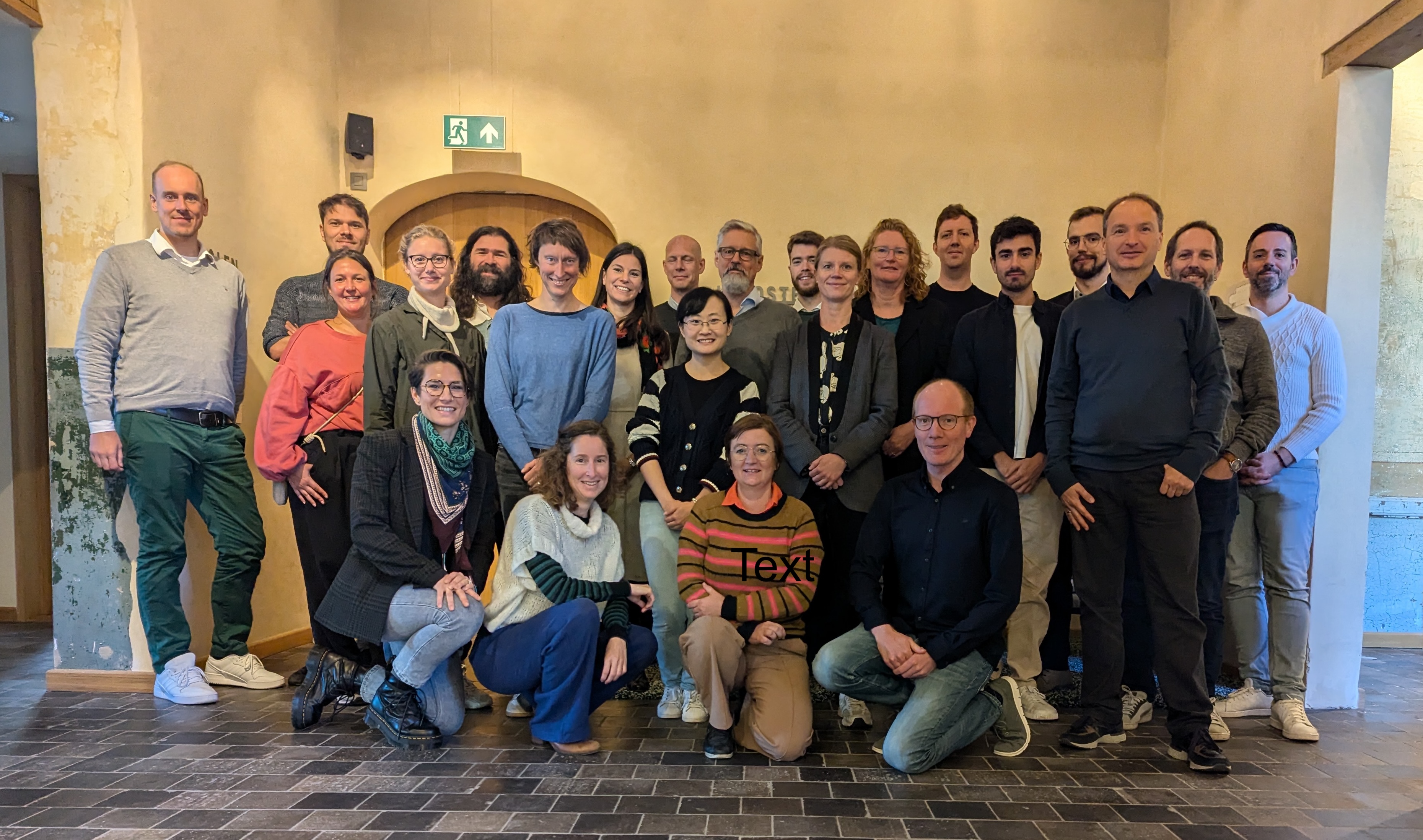The 11 Gleam NSR partners came together again earlier this month to discuss our findings so far and next steps. During the 2-day meeting hosted by the City of Mechelen, cities shared how they are mapping their respective urban logistics ecosystems, the role of SMEs in these ecosystems, and how to include SMEs meaningfully in the green transition moving forward.

The consortium also discussed the importance of capitalisation and collaborated on the creation of our impact statement for Gleam NSR, the North Star guiding our project forward:
Our project will empower municipalities to meaningfully include SMEs in the transition to just and green urban logistics through the development of data-driven policy approaches.
As a project in the Better Governance priority of the Interreg North Sea Programme, it was important for us to highlight how Gleam NSR will enable municipalities to systematically incorporate the needs of SMEs in urban logistics governance frameworks moving forward.
The cities of Rotterdam and Aarhus, both shared their respective approaches to digitisation and ecosystem mapping in their cities. Rotterdam is implementing a strong 2-way communications strategy and has developed modeling tools for Sustainable urban mobility planning and monitoring (SUMPs). Aarhus has decided to start with analyzing the ownership and use of motor vehicles by SMEs in the municipality to better support their transition to green motor vehicles. Both cities have developed their approaches based on the types of information and data available, but also face challenges moving forward due to ambiguity around logistics trips. For example, how are delivery trips made by cargo bikes included and how many vehicles owned by leasing companies are used for urban logistics?
As we look forward to the next stages of the project, our focus will be on SME involvement and how to identify and reach target groups.The City of Leuven shared conclusions from their ecosystem mapping. According to their findings, they will focus their sustainable city logistics projects on 4 segments: catering (horeca), constructions logistics, service logistics, and retail non-food because these transitions will be the most impactful in terms of emissions and safety risks. They then outlined their 7 step plan for implementing city dialogues, starting with identifying which companies are represented in these logistic segments and what type of SMEs are included.
If you would like to learn more, please join us for our next GLEAM NSR Lunch & Learn on November 14th, where will hear from the cities of Rotterdam, Aarhus, and Leuven about their experiences mapping the urban logistics ecosystem in their cities and identifying the role of SMEs.
More info on our Events page
Date: November 14, 2024
Time: 12:00-1:00 pm CET
